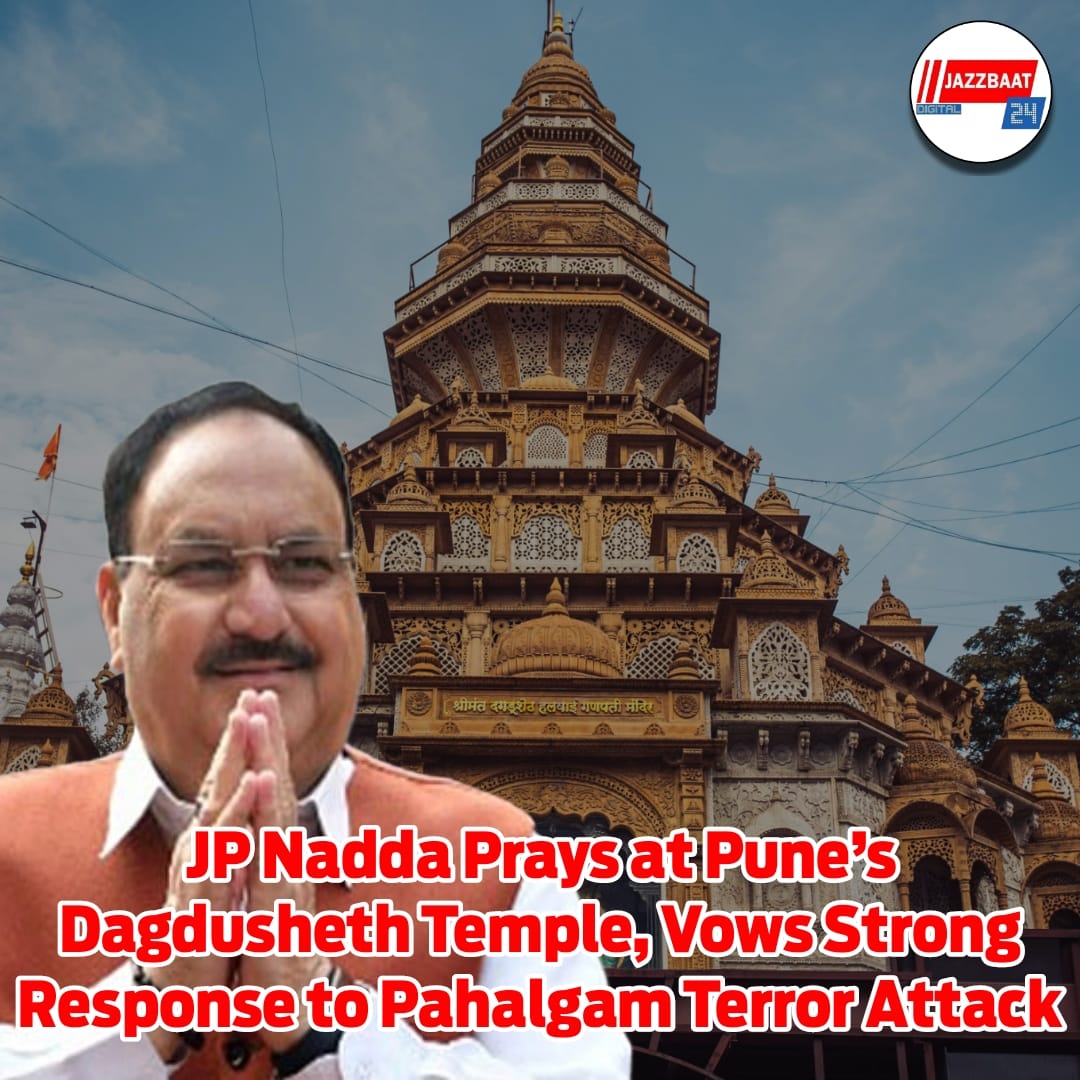
Union Minister JP Nadda visited the revered Shrimant Dagdusheth Halwai Ganpati Mandir in Pune, Maharashtra on Saturday, where he offered prayers amid heightened national grief following the deadly terrorist attack in Pahalgam.
Speaking to reporters, Nadda said he sought the blessings of Lord Ganesha for strength and wisdom for the nation and Prime Minister Narendra Modi during this difficult time. “The entire nation is anguished by the barbaric attack in Pahalgam. I have prayed to Ganpati Bappa to give India the strength to overcome this crisis and ensure a strong, decisive response under PM Modi’s leadership,” he said.
The Pahalgam attack on April 22 claimed the lives of 26 civilians, most of them tourists, triggering massive outrage across the country. In the wake of the attack, authorities have intensified security operations in Jammu and Kashmir.
In a continuing crackdown, security forces demolished the residence of another individual allegedly linked to the attack in Chotipora village, Shopian district. Separately, the house of Zakir Ahmad Ganie — a suspected militant from Mutalhama village in Kulgam — was also razed. Officials believe Ganie had ties to the recent terror strike and had been involved in militancy since 2023.
Earlier, the home of Lashkar-e-Taiba operative Adil Thokar, also known as Adil Guree, was demolished in Bijbehara’s Guree village. He is believed to have played a central role in the April 22 massacre and is currently one of the most wanted terrorists in the region. Authorities have announced a Rs 20 lakh reward for information leading to his capture. Two Pakistani operatives have also been identified as key figures in the plot and are on the most-wanted list.
Meanwhile, the Line of Control (LoC) witnessed another violation, as Pakistani forces opened unprovoked fire across multiple posts late Thursday night. Indian troops responded proportionately using small arms. No injuries were reported.
The renewed violence and cross-border provocations come as India takes stern measures, including the suspension of the Indus Water Treaty, diplomatic disengagement, and heightened counter-terror operations.